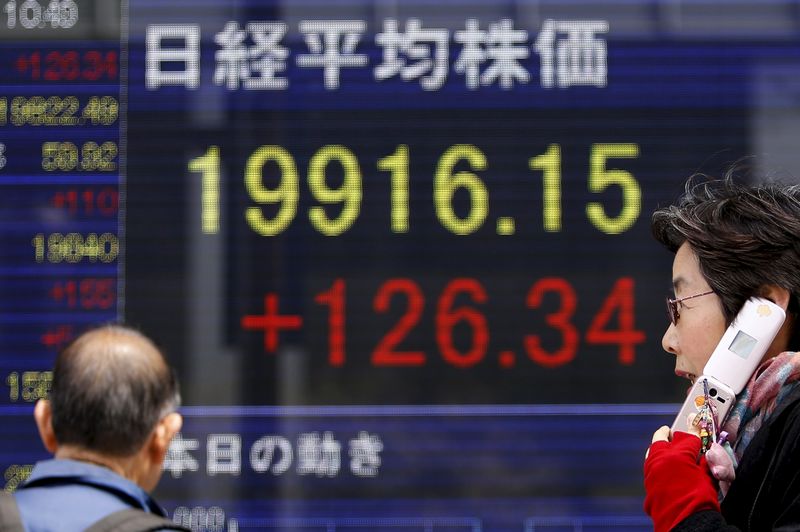Bitcoin price today: gains to $120k, near record high on U.S. regulatory cheer
Investing.com-- Most Asian stocks rose sharply on Tuesday after clocking steep losses in the prior session, with Japanese markets recovering the most after tumbling into a bear market.
An element of bargain buying also aided regional markets, as traders piled into heavily discounted stocks with strong fundamentals, and which are likely to benefit from lower interest rates in the coming months.
But Asian stocks were nursing steep losses from the prior session, which were sparked by growing fears over a U.S. recession after underwhelming labor market readings.
Wall Street tumbled in overnight trade, with the NASDAQ Composite entering correction territory from recent peaks.
Still, U.S. markets also appeared to be due for a rebound, with Wall Street futures rising in Asian trade.
Japanese stocks rebound from bear market; Nikkei up 10%
Japanese stocks were by far the biggest gainers on Tuesday, having fallen much more sharply than their peers in recent sessions. The Nikkei 225 index rose over 10%, while the TOPIX added 8.8%.
Both indexes still remained in bear market territory after tumbling between 12% and 14% in the prior session.
A rebound in Japanese markets came despite mixed wage and spending data for June. While overall wages rose, household spending contracted from a year ago.
A drop in the yen- after the currency surged to its strongest level in seven months- also aided Japanese stocks.
Sentiment towards Japanese markets was dented by hawkish signals from the Bank of Japan, after the central bank raised interest rates and flagged more increases this year.
Australian stocks lag with RBA on tap
Australian stocks rose relatively less than their Asian peers, with the ASX 200 index adding 0.3% after falling sharply in recent sessions.
Sentiment towards Australia remained on edge before the conclusion of a Reserve Bank of Australia meeting later in the day, where the central bank is widely expected to keep rates unchanged.
But markets remained fearful of any potentially hawkish signals from the RBA, given that inflation has remained largely sticky in recent months. The bank is expected to signal that interest rates will remain high for longer.
Most broader Asian markets rebounded after clocking steep declines in the prior session. South Korea’s KOSPI surged 3%, while futures for India’s Nifty 50 index pointed to a strong open after a 2.7% loss in the prior session.
Chinese markets lagged, with the Shanghai Shenzhen CSI 300 and Shanghai Composite both falling slightly to near six-month lows. Hong Kong’s Hang Seng index hovered just over a three-month low.
Sentiment towards China remained on edge following a string of underwhelming signals on the economy and more stimulus.
Focus this week is on key trade and inflation data for more cues on the economy.
